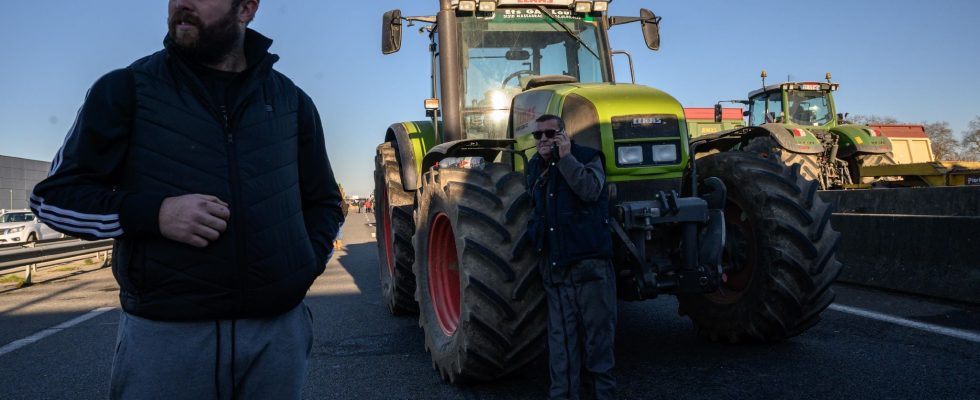“Non-punitive” ecological sobriety. The slogan was given by Emmanuel Macron last June at Le Bourget. Quickly said. Quickly forgotten too. Unlike the yellow vest crisis, which seems to be reborn in a new form… Since Thursday January 18, hundreds of farmers have been mobilizing on the highways of France to make their anger heard.
The trigger is reminiscent of that of December 2018: the increase in a tax on fuel, the TICPE (domestic tax on energy products). But this time, it is “GNR”, non-road diesel, which is concerned. A fuel used to operate agricultural tractors or public works machinery, and which until now benefited from tax relief. Specific taxation in relation to fuels purchased by motorists or truck drivers.
A tax reduction that does not pass
During 2023, in a logic of decarbonization of the different sectors of production, the government promises to attack the famous “brown niches”, these tax advantages contrary to the objective of reducing greenhouse gas emissions. In its sights, the GNR and its reduced tax, which it threatens to cut.
It is therefore in this spirit that Bercy begins negotiations with the FNSEA at the beginning of June. Faced with the inconsistency of a gradual elimination of the GNR tax refund, the first agricultural union is belching. And pleads the absence of more ecological solutions, before finally reaching an agreement in September: its reduction will be spread over several years, until 2030. And the revenue recovered by the State will be used to finance a biofuel sector.
A sort of “compensation” had argued Arnaud Rousseau, president of the FNSEA. And to welcome that “the dialogue put in place by the government has made it possible to avoid (the) type of pitfalls” encountered, for example, by our neighbors across the Rhine, where the announcement of an increase in taxes on agricultural diesel has caused a major movement.
Except that the measure inevitably results in an increase in the price of RNG for farmers. Some three cents more per liter of fuel in 2024 compared to 2023. Anticipating discontent in the sector, Bruno Le Maire tried to reassure in September: “There will be a reduction in this tax advantage of 2.8 cents per liter of fuel. fuel in 2024. You see that it is modest.”
A mobilization that turns into drama
Modest, perhaps, but sufficient to trigger a new protest movement which seems to be growing day by day. And which, this morning of January 23, turned into a tragedy. Around 5:45 a.m., a farmer in her thirties was killed on a dam in Ariège, mowed down by a vehicle on a blockage point installed by farmers on the RN 20 in Parmiers.
At the request of the leader of the communist deputies André Chassaigne, a minute of silence should take place this afternoon in the National Assembly. “I express the deep emotion of the PCF and GDR deputies, upon learning of the death of a farmer on a dam”, he wrote on X.
For his part, the Minister of Agriculture Marc Fesneau expressed his thoughts for “[le] spouse and daughter, who are fighting for their lives”. And deplores a “drama for all of us”, which risks fueling the anger of a profession at the end of its tether, denouncing for several years the rise in production costs and the eternal inflation of European standards. Contempt or lack of consideration? The president of the FNSEA Arnaud Rousseau warned: the mobilization could last “a day” or “a week”. In a nutshell: “The time it takes It will take for the answers to be provided.”
